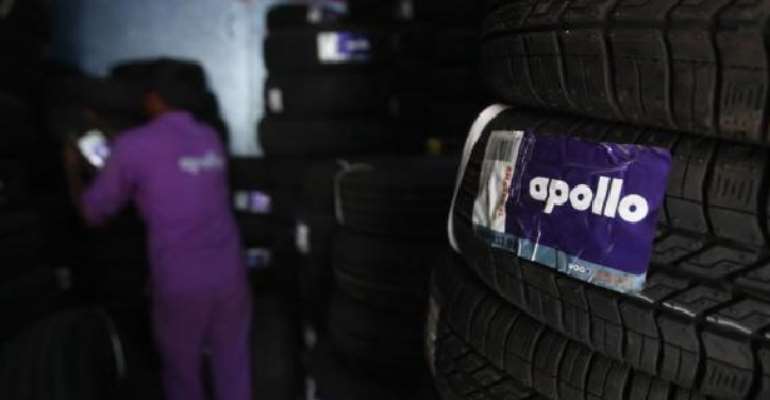Apollo's Failed Deal For Cooper Sows Doubt On Future Indian M&A

The ambition from Indian mid-sized companies for large debt-fueled acquisitions abroad was dealt a major setback after the unraveling of a $2.
5 billion bid by India's Apollo Tyres Ltd (APLO.
NS) to buy Cooper Tire & Rubber Co (CTB.
N).
While some bankers said Apollo's bid for Cooper was risky due to the larger size of the target, the outcome will add to skepticism about the ability of Indian family-run firms to execute large cross-border deals despite their need to search for growth abroad.
"There wasn't a gung-ho attitude toward outbound M&A anyway in the last couple of years in India and the Apollo-Cooper episode will further slow down the process," said the head of M&A at a European bank in Mumbai.
"Indian companies haven't had much success in their outbound drive and after this, especially the mid-sized names, would be a lot more cautious about the kind of assets they buy, the kind of leverage they take.
" India Inc's overseas ambitions rose along with China's roughly 10 years ago as the two countries courted growth outside their own economies.
Corporate India has won some successful overseas deals, including Tata Motors' (TAMO.
NS) acquisition of Jaguar Land Rover from Ford Motor (F.
N) in 2008 for $2.
3 billion.
But for the most part, India has struggled to show that its companies are equipped with the savvy, the experience and the determination needed to win cross-border deals and to manage them well.
India Inc has launched $117 billion worth of outbound M&A in the past decade, but that pales in comparison to China's $390 billion worth of outbound deals announced in the same period, according to Thomson Reuters data.
Unlike China, where state-owned enterprises have dominated deal flows, in India the private sector companies, especially small and medium-sized ones, have been at the forefront of deal making with deals often fuelled by large amounts of debt.
GVK Power & Infrastructure (GVKP.
NS) in 2011 agreed to pay $1.
26 billion for a majority stake in three Australian coal mines and a port and rail project owned by Hancock Group, but has seen the debt denting its balance sheet and its shares.
Other mid-sized family-owned Indian enterprises such as GMR Infrastructure (GMRI.
NS) are also reeling under the impact of the debt they took on to acquire overseas assets in the last couple of years.
The doubt cast on the outlook for future deals from India is bound to intensify after Cooper said on Monday it was terminating its proposed sale to Apollo in a deal that faced obstacles from the start.
Apollo's bid for Cooper appeared surprising given that the Indian company was a third of the size of its U.
S.
target.
Apollo relied on a hefty debt package for its ambitious attempt.
According to people familiar with the matter, investment bankers had pitched acquisition ideas to Apollo for years.
With annual sales of about $2 billion and a market value of roughly $700 million, the practice was restricted to targets worth less than $500 million.
Officials with Apollo declined to comment on Tuesday.
One banker involved said he was shocked when Apollo's managing director, Neeraj Kanwar, whose family owns 43 percent of Apollo, showed interest in U.
S.
-based Cooper Tire.
"In a pitching process, people show all kind of things to a possible buyer, but few thought of showing Cooper to Apollo," a source with direct knowledge of the situation said, declining to be named as he was not authorized to speak to the media.
All the bankers Reuters spoke to for this article declined to be named.
Now that the deal has unraveled, questions are being asked whether cheap financing and over-exuberance took precedent over a deeper scrutiny of Cooper, raising worries that it will make other Indian acquirers gun shy.
"People including perhaps Apollo will continue to look at deals, but the outbound deals worth more than $500 million will be very, very selective.
Indian companies will have a lot of homework to do before they get back into the aggressive mode," said the investment banking head at a foreign bank in Mumbai.
REUTERS
